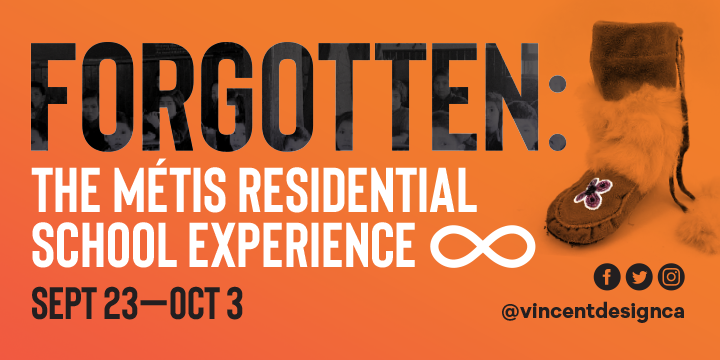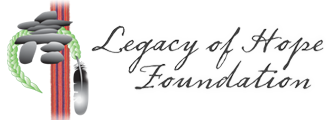News
Forgotten: The Métis Residential School Experience

VDI Events / September 12th, 2022
Friday, September. 23
Opening Night Reception, open 5 p.m. to 7 p.m.
Tuesday, September 27 to Thursday, September 29:
Open 9 a.m. to 4 p.m.
Friday, September 30, National Day for Truth and Reconciliation:
Open 10 a.m. to 2 p.m.
Saturday, October 1 and Sunday, October 2:
Open by request
Monday, October 3:
Open 9 a.m. to 4 p.m.
This post and the exhibit discussed contains subject matter that may be disturbing to some visitors, especially to Survivors of the Residential School System. The National Indian Residential School Crisis Line for former Residential School students is available at 1-866-925-4419. Immediate emotional support is available 24/7 to all Indigenous people across Canada. Call the Hope for Wellness Help Line 1-855-242-3310 or chat online at: http://hopeforwellness.ca.
It’s estimated that 10% of children taken to residential schools were Métis. Their experience is different, while children often endured the same neglect and abuse. The Forgotten: The Métis Residential School Experience exhibit documents and gives voice to the experiences of the many Métis children who attended these schools and explores Métis identity, cultural reclamation, and healing.
From September 23 to October 3, we’re hosting this Legacy of Hope travelling exhibit in our 3rd floor boardroom at 765 Main in the Social Enterprise Centre as a part of Culture Days and to recognize the National Day for Truth and Reconciliation on September 30.
Everyone is welcome to come and view the exhibit. There is no fee to attend. As we are on the 3rd Floor in a walk-up building, please call ahead for accessibility arrangements to ease your visit as required.
Métis children remember being the “outsiders” to the residential schools. In some cases they were told they were too white for the Indian schools or in other cases they were told they were too Indian for the provincial school system.
In 1911, the Department of Indian Affairs created “classification of Halfbreeds.” Only “Halfbreeds” living like Indians or “worse off than Indians” could be admitted to residential schools.
“Culture Days are important for our country. It reminds us of who we all are, and where we come from. This is especially important for me, because I come from the very land we’re walking on. I keep trying to remind myself of this. A Métis elder once told me that this land (St. Laurent) knows my feet. I love this,” said Shaun Vincent, about bringing in the exhibit with the generous support of the Legacy of Hope Foundation.
“I also realize how much the residential school system and the stories that go along with it have affected us. Not only for Survivors who were directly involved but the ideas and systems that permeated communities. Indigenous culture was outlawed. This made Indigenous people ashamed of who they are. So this is why I want this exhibit. Any chance to proudly share any stories related to Métis people, I will take it.”
“For me, it’s another chance to give back, and support this movement of reconnection and resilience.” – Shaun Vincent
The exhibit was developed by the Legacy of Hope Foundation in collaboration with curator Gregory Scofield and advisors Maria Campbell, Brenda MacDougall, Christi Belcourt and Guy Freedman, as well as researcher Tricia Logan.
Read more about the Métis residential school experience in Canada’s Residential Schools: The Métis Experience, from the Final Report of the Truth and Reconciliation Commission of Canada.
You can also download the accompanying exhibit app Forgotten Métis and a PDF guide to the exhibit.
With gratitude to the Foundation for making this exhibit possible.

